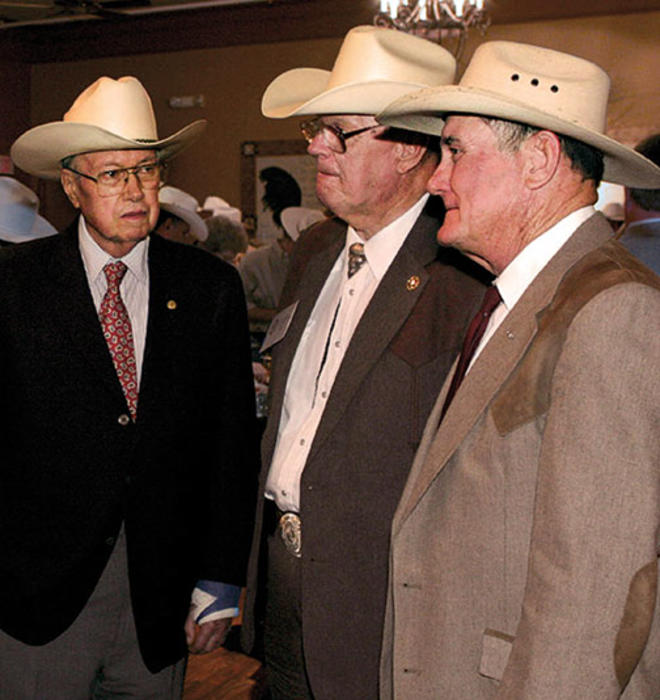
T.R. Fehrenbach ’45’s best-known book, Lone Star: A History of Texas and the Texans, lays out a 719-page argument for the state’s distinctiveness, from the land itself to the enduring frontier values of its people. But near the end of the final chapter, Fehrenbach foresaw an end to the Texas heritage he held dear.
“[W]hen the office-working, car-driving Texan is completely indistinguishable from his Northern counterpart,” he wrote, “the history of Texas, as Texas, will be done.”
The population of Texas has more than doubled since the publication of Lone Star in 1968, with much of that growth coming in the office-working, car-driving metropolises of Houston, Dallas, San Antonio, and Austin. But the story of “Texas, as Texas” continues, thanks in part to the enduring popularity of Fehrenbach’s book and the author’s later work as chairman of the Texas Historical Commission.
Born in San Benito, Texas, on the southernmost stretch of the Rio Grande, Fehrenbach came from a family line that included cotton growers and cattlemen. As a boy, he read the classics in his grandfather’s library. His mother, Mardel Wentz Fehrenbach, believed her son’s destiny as a writer and historian was set at age 10, when he completed Edward Gibbon’s Decline and Fall of the Roman Empire. “It’s her story, but a good one, and I see no reason to change it,” Fehrenbach said in a 1964 letter to PAW.
The family moved to Hollywood, Calif., where Fehrenbach completed high school. He entered Princeton in the fall of 1941, but his time on campus was interrupted — as it was for many of his classmates — by service in World War II. After returning from the Army, Fehrenbach finished his degree in 1947. He later served in the Korean War and wrote about the conflict in This Kind of War (1963), a cautionary tale that has been praised by former Secretary of State Colin Powell.
Fehrenbach was an independent historian — his Princeton degree was in modern languages, and he never pursued graduate study or held a faculty post. His younger brother Charles ’51 was the scholar in the family, a professor and Fulbright fellow who specialized in 19th-century Spanish history. But the elder Fehrenbach demonstrated a skill for memorable prose that cut to the heart of his subjects. His account of the siege of the Alamo, for instance, began with a one-sentence paragraph:
“Human folly is far easier to explain than human valor.”
If Lone Star established Fehrenbach’s public reputation, his encyclopedic knowledge and affability cemented it. He and his wife, Lillian, befriended senators and governors, including the future president George W. Bush. Fehrenbach also proved adept at connecting history to contemporary politics and international affairs, building a loyal following as a Sunday columnist for the San Antonio Express-News.
Lone Star has its critics: Some academic historians argue that its focus on white male settlers overshadows the contributions of women, Mexicans, American Indians, and African Americans in the state’s formative era. But even Fehrenbach’s detractors marveled at the lasting popularity of his work.
In 2013, the University of Texas Press announced plans for a 16-volume history series called The Texas Bookshelf. The press’s director, Dave Hamrick, shared the project’s ambitious goal in an interview with the Austin American-Statesman: “to publish a history of Texas that would be the new Lone Star.”
Brett Tomlinson is PAW’s digital editor.






1 Response
Donald Kirk ’59
10 Years AgoLives Lived and Lost
Until seeing the mention of Mr. Fehrenbach in PAW, I had no idea he’d gone to Princeton or, for that matter, had written a major book on Texas history. All I knew was his important work on the Korean War, in which we’re told “he served.” It would have been interesting to know what he did during his Army service.